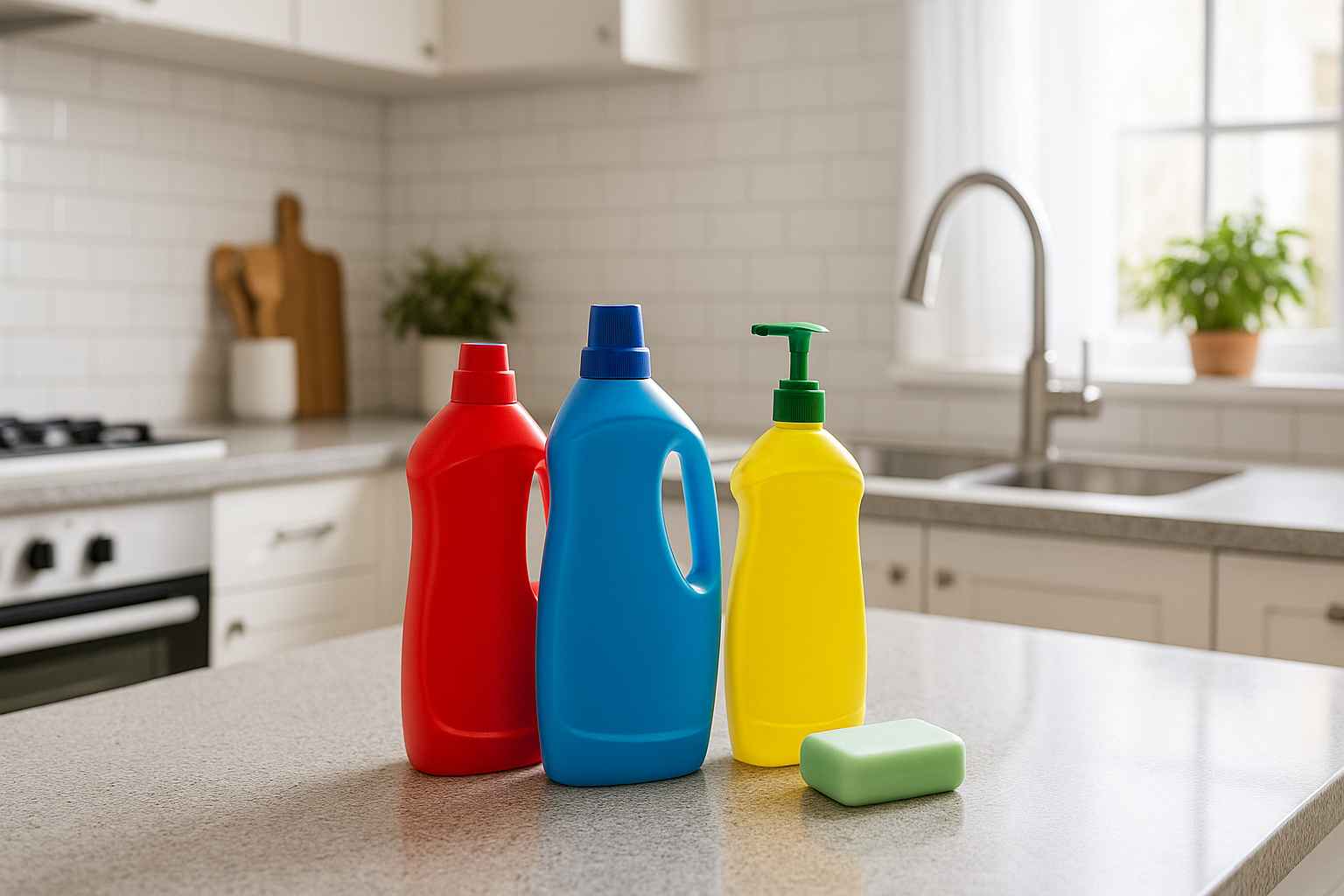
Detergent Cleaner vs. Soap: What’s the Difference?
G'day mates! As someone living in South Australia, I know the importance of keeping things squeaky clean - whether it's the house, clothes, or dishes. One thing that's always been on my mind - and possibly yours too - is trying to figure out the real differences between detergent cleaners and soap. It sounds simple enough, but trust me, it can be a bit of a headscratcher. So let's roll up our sleeves and dive into this sudsy comparison!
Understanding the Basics: Detergent Cleaner and Soap
Both detergent cleaners and soap exist to help us clean our homes and belongings, but their formulations and functions vary significantly. While both are cleansing agents, they serve different purposes and excel in distinct areas, particularly concerning their ability to tackle specific types of stains and dirt.
The Inside Scoop on Detergent Cleaners
Detergent cleaners are chemically engineered to dismantle and remove oils, grease, and tough stains. Basically, they're like the heavy artillery in the cleaning world. They're powerful enough for stubborn grime and generally make life's more laborious cleaning tasks seem like a breeze.
- Effective Against Grease: The strong chemical composition of detergents - with surfactants as the key players - gives them an edge in breaking down oils and grease, making them particularly effective for oily messes. Imagine popcorn on the ceiling after a hard fry-up - detergents tackle that with ease!
- Versatile Selection: You'll find detergent options for laundry, dishwashing, and as all-purpose cleaners. Depending on your need, there’s a detergent type that's just right for the job.
Soap: The Old-World Cleaner
Soap, on the other hand, is typically created from natural fats and oils combined with an alkaline substance. While its ingredient list may sound a bit more organic, it's not quite as potent against grease. However, it boasts its set of merits.
- Gentle on Skin: Soap tends to be gentler on skin compared to some detergents, which can dry out your hands. This makes soap a good option for handwashing delicate items.
- Environmentally Friendly: As it’s oftentimes biodegradable, soap breaks down in water more easily than some synthetic detergents, making it a safer choice for the environment.
The Types of Detergent Cleaners and Their Uses
1. All-Purpose Cleaners
These are your go-to guys for everyday cleaning duties, versatile enough to tackle anything from kitchen counters to bathroom sinks. All-purpose cleaners usually contain surfactants designed to break down grease and dirt, and some even come with disinfecting agents onboard to kill germs. Perfect for a quick tidy-up, the bottle under the sink might very well be your best cleaning mate.
2. Laundry Detergents
Laundry detergents are experts at handling fabrics, ensuring your clothes come out smelling like a dream. They come in several formats to cater to different fabric types and washing conditions:
- Powder Detergents: Ideal for heavy-duty washing and hard water conditions, powder detergents excel at removing tough stains. Keep in mind that a precise dose is key.
- Liquid Detergents: Best for greasy or oily stains, liquid detergents dissolve rapidly, making them great for cold-water washes and delicate fabrics.
- Detergent Pods: Convenient for single loads, these handy pre-measured pods save time and minimise mess.
- High-Efficiency (HE) Detergents: Designed specifically for modern HE washing machines that use less water, these are low-sudsing and highly concentrated.
3. Dishwashing Detergents
- Manual Dishwashing Liquid: A mainstay for handwashing dishes, it's highly effective against grease and food residue, albeit requiring a bit more scrubbing effort.
- Dishwasher Detergent: Formulated for use in dishwashers, these ensure your crockery comes out spotless with minimal labour.
4. Cationic Detergents
Cationic detergents have a specific role due to their positive charge when dissolved in water. They're best used as disinfectants and deodorizers with anti-static properties, making them a top choice for certain industrial and commercial cleaning tasks.
Detergent vs. Soap: Making the Right Choice
Both detergent cleaners and soap have their place in the cleaning cupboard. When it comes to grease and oil-heavy jobs - say cleaning those tucker-stained clothes after a BBQ - detergents usually have the upper hand. They’re engineered for efficiency and effectiveness. On the flip side, if you’re after something a bit kinder to your skin and the environment, soap might just be your mate.
The choice between the two depends on what needs cleaning, your personal preferences, and sometimes the environmental impact of the product itself. For everyday cuts and scrapes, soap works wonders - environmentally and economically. But when you’re tackling tougher stains or greasy surfaces, a detergent cleaner often delivers superior results.
Detergents: Environmental and Safety Considerations
With great cleaning power comes great responsibility. When handling detergents:
- Follow all label instructions carefully to avoid misuse.
- Wear protective gloves, particularly if using a stronger formulation.
- Store out of reach of children and pets - particularly liquid detergents and pods, as they can be mistaken for lollies.
Environmentally, opting for eco-friendly detergents is always a win for both you and Mother Nature.
Closing Thoughts
Whether you swing towards detergent cleaners for their powerful grease-busting action or lean towards soap's gentle touch, understanding the differences is key to making the best decision for your cleaning needs. Here in South Australia - and anywhere for that matter - maintaining a clean, fresh, and safe living environment is possible with a little knowledge and the right products at your disposal. So go on, make the most of that cupboard under the sink and tackle the muck and grime with confidence!
